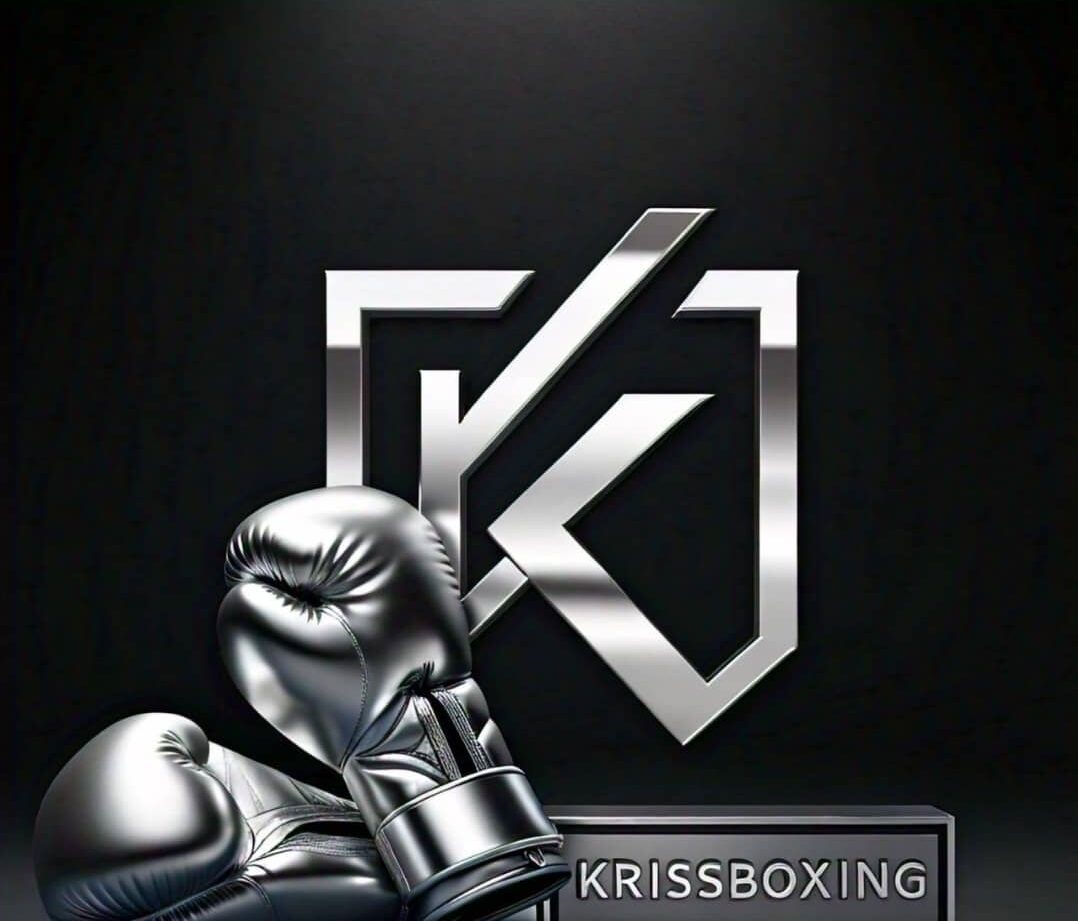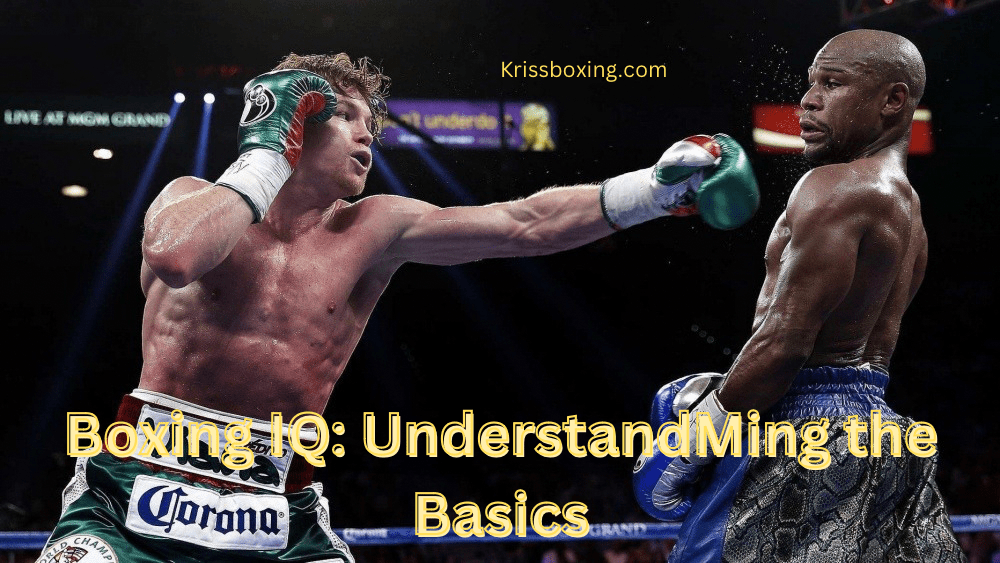To the layman, the game of boxing is truly the theater of the physical, but those of us who’ve been in the squared circle are privy to the fact that the game is also a battle of the mind.
The term that makes a lot of sense to it is ‘boxing IQ’ which means the use of the brain rather than the brain. Boxing IQ is something that every boxer should know to progress through the levels etc because it can be the decisive factor in the close decision match.
The Essence of Boxing IQ
The Mental Game: Beyond Physical Strength
Boxing IQ or boxing intelligence is therefore the tactical part of the sport of boxing. Thus, where speed, power, and endurance are more orthodox elements of fighter prowess.
Boxing IQ involves a fighter’s knowledge of when to attack, how far away to stalk an opponent where he needs to place his punches, and how he can thereby outwit a rival fighter. It’s about when to go for the kill, when to cover, and when to save your strength.
This is the strategic aspect of boxing since it enables the fighters to pace themselves, understand the moves of the opponent, and find ways of overcoming the opponent.
Adaptability: Reading and Reacting to Opponents
Flexibility is among the three facets of boxing IQ. For a boxer, he should be able to see the apt moment to attack and at the same time determine his or her opponent’s movements.
This could mean analyzing an opponent and understanding his posture, and loopholes, or even outthinking him or her during the duel. A high boxing IQ gives a fighter the composure to think when pressured, plan at least three moves, and beat his/her opponent.
Ring Generalship: Commanding the Ring
Another area of boxing IQ is Ring generalship. They used the term concerning the ability of one boxer to determine his/her fight tempo and how the battle is to proceed, or maybe put more bluntly, such a boxer is more or less managing things as per his/her wish.
A fighter with a good ring generalship puts his opponent under pressure, makes them adopt an unfavorable position, and dictates the range and pace at which the fight will be conducted. This means that in addition to strength and agility, there is also knowledge of how one can employ the size of the ring to one’s benefit.
Developing Your Boxing IQ
Studying Opponents: The Importance of Film Study
The use of boxing IQ entails several fundamental aspects that are easy to learn but hard to master and one of them is studying your opponents. Fight footage enables boxers to assess their opponent’s style and determination, as well as their tendencies and vulnerabilities.
Through these patterns, a fighter is in a position to come up with a strategy that he or she can use when facing a specific opponent with an understanding of this opponent’s weaknesses. This aspect of boxing IQ is learned over time and with the increase in the ranking of the boxer, the IQ to adapt to the opponent increases as well.
Sparring: Real-Time Application of Knowledge
Sparring is where all that has been learned about boxing IQ comes into play. While reading books or watching videos about strategies and tactics may help get some perspective on them, only using them actively while facing an opponent is what enhances the boxing IQ.
While practicing, for instance, through feints, one develops the ability to understand the opponent’s tendency to move in a certain way by noticing the changes in his weight or breathing. There is no better way of honing these mental faculties that are important in the squared circle.
Mentorship: Learning from Experienced Trainers
Boxing IQ mainly involves mentorship as one of the most critical factors in the improvement of the whole boxing performance. Trainers who have been training fighters for years have a wealth of information that would help the fighter become better much faster than if the fighter trained alone.
I sought out more than just the physical lessons of the game, but the brain games, the stress and anxiety management, and the strategic planning. A good trainer will be able to explain why a particular move has to be made and therefore increase the boxing IQ of a boxer.
Application in the Ring
Defensive Mastery: Anticipating and Avoiding Danger
Indeed, the level of boxing IQ is most often time demonstrated when it comes to defense in a fighter. Thus, a wise boxer not only answers the punch but thinks one or two steps ahead so that the opponent will miss and the counter is on.
This is the art of reading an opponent, the angles, reading a specific period, and the counter–slip, and block, counter and punish. I went further to acknowledge that Defense is also dependent on one’s brain as much as the limbs’ agility.
Offensive Strategy: Setting Traps and Feints
Offensive-wise, a fighter with a good boxing IQ knows how and when to lure his opponent into falling for his trap and tends to use a lot of feints to lure his opponent into an area of weakness.
This might entail setting up an opponent for a blow so that he can be locked in a position to be attacked. It’s the strategy of the mental battle, of how to confuse, how to know when to act, and how to off-balance someone. Offense, when tied with a good boxing IQ, compares to a very tactical rather than brutal assault, that quite often is limited to just flailing at your opponent.
Managing Stamina: Knowing When to Push and When to Rest
The last one is stamina management which is an important component of boxing IQ. Anderson put into practice what any smart boxer understands – how to apply pressure when it matters and how to save strength during the rest of the rounds.
They are symbiotic with this approach: capable of managing the physical and mental fatigue observed during competition, and knowing when they have got to save some gas for the remaining phases. This means not only familiarizing the body with certain activities but also the ability to remain focused during a game despite strain.
Frequently Asked Questions
What exactly is Boxing IQ?
Boxing IQ can be defined as the state of mind and the range of intelligent actions that take place during the match, including the actions for the desired time, the reach range, the ability to adjust, and generalship.
How can I improve my Boxing IQ?
It must also be understood that there is a Boxing IQ that can be enhanced through the study of film, through sparring, and through the lessons of people who have been in the ring before. You need to cultivate an understanding of how and when your adversity will change in real-time.
Is Boxing IQ more important than physical attributes?
Despite such abilities as speed and power, it is Boxing IQ that comes into play when two fighters are evenly matched and ‘impossible’ is needed to win the bout.
Can Boxing IQ be taught, or is it innate?
It can, however, be seen that boxing IQ is a feature that can be enhanced with time and experience and through training and learning. Some fighters may be gifted in this area, but it is possible to enhance their boxing IQ greatly.
How does Boxing IQ relate to ring generalship?
Boxing IQ has a major relationship with ring generalship as it entails controlling the tempo and the flow of the fight, decision making, and overall ability to frustrate the opponent.
Conclusion
To sum up, one may state that Boxing IQ is the mental basis for the further building of a successful boxing career. Upon going through the physical assets, it extends to the mental talents, including strategy, flexibility, and expertise of the sport.
It therefore makes sense to work on one’s Boxing IQ, so that a fighter can win more often through strategy against an opponent. The journey of enhancing boxing IQ could be achieved through analyzing opponents’, and partners’ match-ups or learning from senior trainers and fighters.




